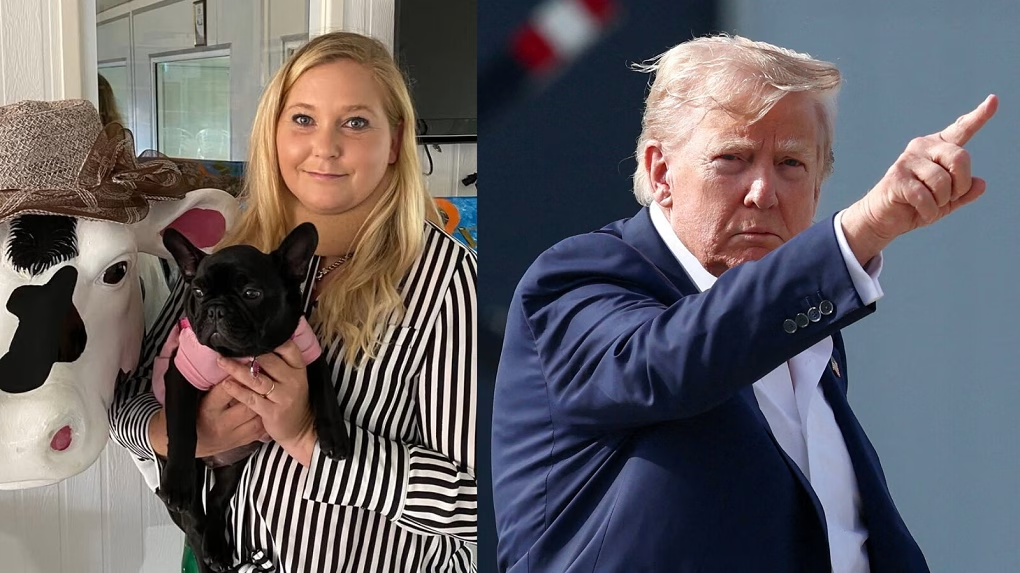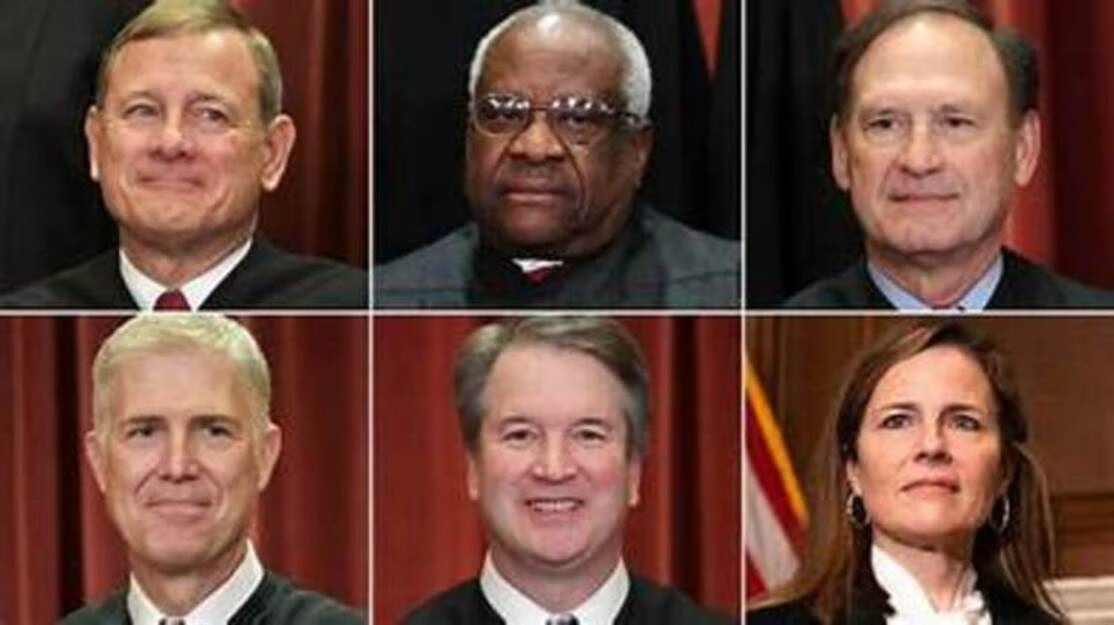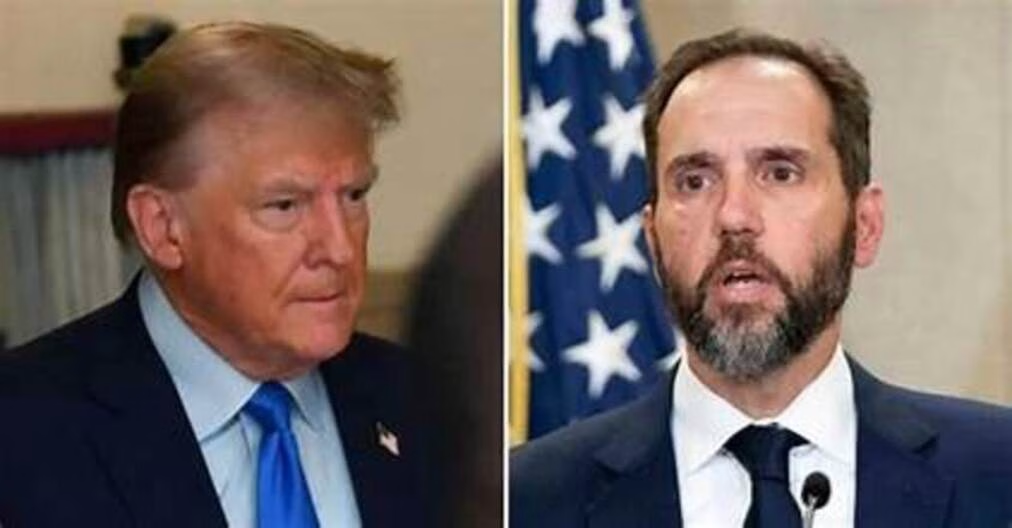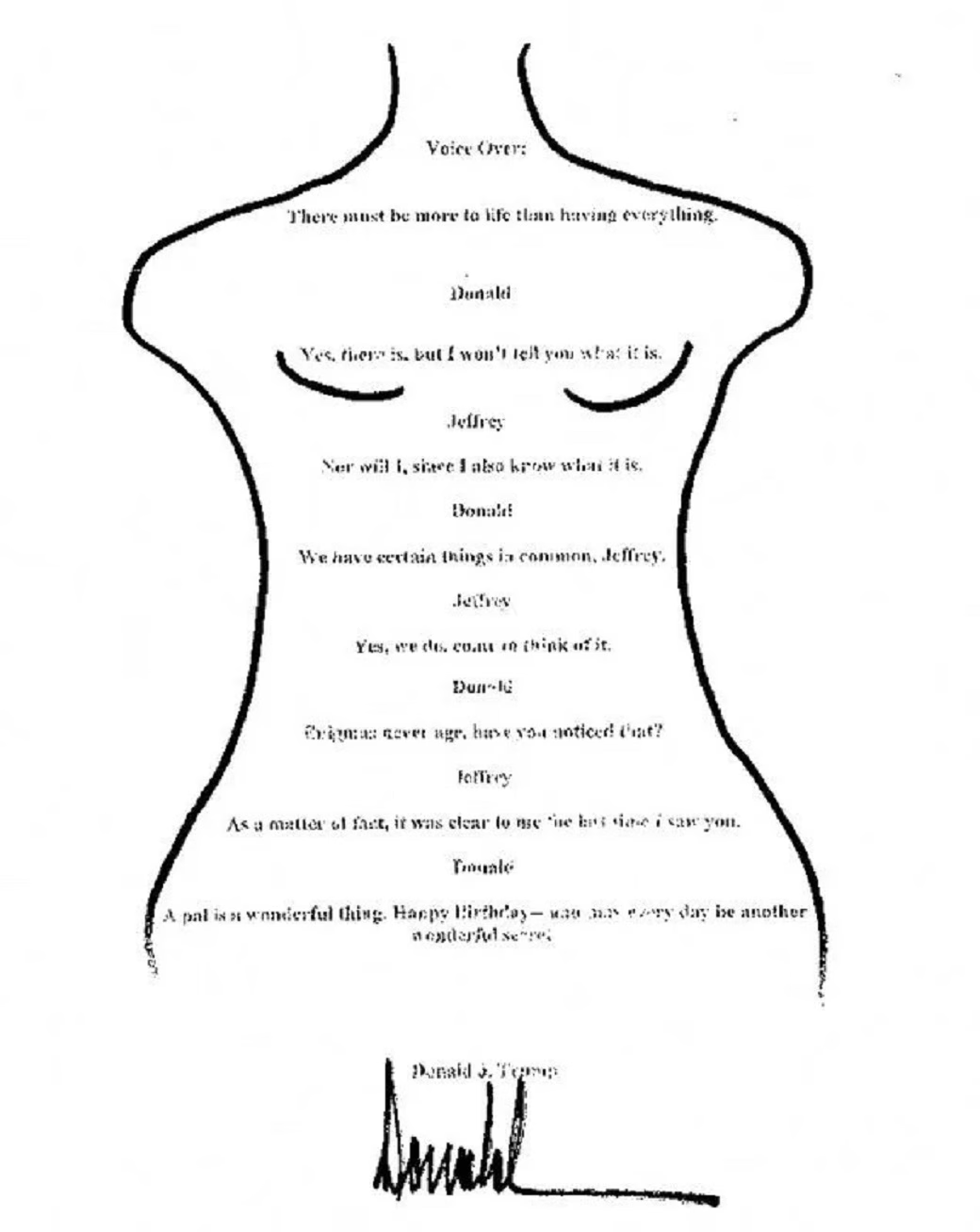By Tony Bruce | Saturday, November 15, 2025 | 6 min read
There is a particular kind of dread that settles in when a long-buried story resurfaces with fresh, unfiltered detail. The newly released Epstein files include accounts that are unsettling enough on their own, but one detail in particular has caught public attention: a description of Donald Trump spending hours in a room at Epstein’s house with Virginia Louise Giuffre, who was around sixteen at the time—still a minor, still under Epstein’s control, and years away from escaping the world he trapped her in.
Reading it now, after everything we’ve learned about Epstein’s network and the people who circulated through his orbit, the image is enough to turn anyone’s stomach. In one message, Epstein even told an associate named Kathy, almost with pride, “You see, I know how dirty Donald is.” The tone doesn’t sound like a man speculating. It sounds like a man stating a fact he believed he didn’t need to hide.
Another email describes Trump pressing his face to the glass at Epstein’s home, as though eager to get closer to the girls running around the pool. Epstein wrote that Trump nearly walked into the glass door in his excitement. It is a disturbing vignette—one that doesn’t allege a specific crime but does paint a picture that is hard to dismiss, particularly given everything we now know about the environment inside Epstein’s house and the ages of the girls who moved through it.
Michael Wolff once claimed Epstein believed he could “hang [Trump] in a way that generates positive benefit for [Epstein].” That line lands differently now. There may be no single smoking gun tying Trump to an illegal act, but the number of smaller smoldering fires is difficult to ignore. Emails that suggest Trump knew exactly what Epstein was doing, that he spent hours on the property, that he was present while minors—minors like Giuffre—were in the house. The defense that Trump was simply unaware collapses under the weight of these accounts.
The obvious question now is what Ghislaine Maxwell knows. She’s already received unusual treatment in federal custody, and the special favors she appears to enjoy are impossible to square with her conviction. Maxwell once claimed Trump had acted like a “perfect gentleman,” a line Trump’s defenders cling to as if it absolves him of anything else. But even she exchanged emails with Epstein in which he referred to Trump as “the dog that didn’t bark”—a man who had been present, again and again, without ever becoming part of the official conversation. Maxwell’s reply—“I’ve been thinking about that”—is more revealing than her earlier public politeness.
Her request for a commutation or pardon from Trump this week demands scrutiny. It no longer looks like an ordinary plea from a high-profile inmate. It looks instead like someone signaling she has leverage. The idea that this might be an “insider’s deal,” as some have put it, doesn’t sound conspiratorial anymore—it sounds plausible. If Democrats cannot connect this to the broader culture of protection that has allowed the powerful to insulate themselves for decades, then they are missing a moment made for accountability.
Journalist Julie Brown noted recently that Maxwell’s treatment in the Texas facility where she is held defies precedent. Staff reportedly complain that they feel as if they’re working for Maxwell, not supervising her. She enjoys access to communication tools that inmates with far lesser convictions never see. These details may seem like footnotes, but they help sketch the outline of a dynamic in which Maxwell continues to operate with an unusual degree of influence—and in which Trump may have incentives that go beyond political loyalty.
The more troubling part is that Trump’s name surfaces repeatedly in the correspondence between Epstein and Maxwell. We now know they flagged his name, tracked his mentions, and maintained shared files. Anyone pretending this is all coincidence is either lying to themselves or hoping the public hasn’t been paying attention.
The Haunting Presence of Virginia Louise Giuffre
There are more than 20,000 emails, and only a portion has been examined closely. Trump’s response so far makes even less sense now that Virginia Giuffre’s identity in one quoted message has been confirmed. His defenders circulated an old line from Giuffre saying Trump acted like a gentleman at Mar-a-Lago. But Giuffre is no longer alive to elaborate, and even if she were, the idea that a sixteen-year-old girl’s public statement—made within a system she had every reason to fear—could erase the implications of Trump spending hours with her at Epstein’s home is a cynical dodge.
One cannot help but marvel at the spin. The White House rapid-response team seemed almost triumphant when pushing out that years-old quote. As if the defense is simply: Trump spent hours with a girl trafficked by Epstein, a girl who was sixteen, and she said he didn’t harm her. So, what—case closed?
It’s the kind of defense that falls apart the moment you turn it over in your hands. Nothing about it makes sense. What was the setting? Who else was there? Why was a man as powerful and worldly as Donald Trump spending hours in a private home with a teenage girl who had first worked for him at Mar-a-Lago and was later pulled into Epstein’s orbit?
Was he supposed to be offering her life advice, babysitting her, passing the time like some benevolent mentor? The very idea strains belief. These aren’t questions that disappear just because a scared young woman once felt compelled to say something flattering about a man adults around her treated as untouchable.
What lingers instead is a discomfort that grows with each new detail. Trump may insist everything is fabricated, but the picture emerging from the emails is not the kind of fiction anyone would invent. It has the jagged, ugly contours of truth. And it demands to be taken seriously.
When Silence Becomes Complicity: Trump’s Epstein And Maxwell Problem Returns
Would you trust Elon Musk — or anyone — with control over your Optimus workers?
The Humiliated Duck: How Donald Trump’s Era of Untouchable Power Finally Crumbled
Okocha Was Better Than Beckham—But White Privilege Wrote the Headlines
PRESS RELEASE: Tesla Optimus Gen 2: Elon Musk’s $1 Trillion Army of Programmable Workers






